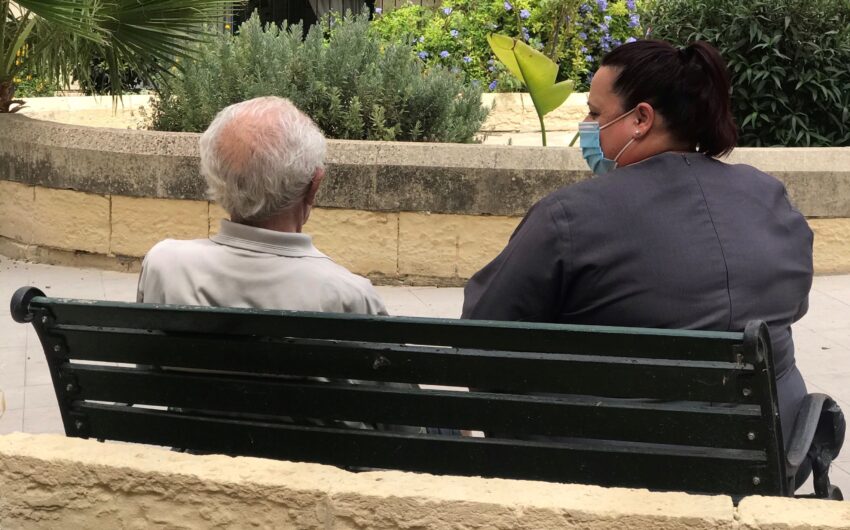
Alzheimer’s is a progressive disease and the leading cause of dementia, accounting for 60 to 80 per cent of all cases. It is most predominantly demonstrated by memory loss and a decline in cognitive abilities, which gradually worsen over time.
“Alzheimer’s is a smart thief. It steals from you, and you cannot even remember what it has stolen,” says the young nurse.
“We have several residents who suffer from Alzheimer’s and who are at different stages of this degenerative disease. The care they require varies, depending on the severity of their condition.”
Unfortunately, there is no cure for Alzheimer’s. “However, one of the most important aspects in clinically caring for these residents is conducting frequent medical reviews to ensure that treatment is in accordance with the stage of their disease, and also to slow down the progression of symptoms as much as possible,” Matthew explains.
Residents with Alzheimer’s are also visually monitored for any behavioural and cognitive changes, in a bid to offer the best quality of life.
“To help us better achieve this, we use behaviour charts and other assessment tools. These changes are then brought to the attention of a consultant geriatrician or GP, so that the appropriate treatment can be given. Moreover, Alzheimer’s can cause residents to suffer from mental health issues, such as depression, agitation and psychosis. Thus, it is also important to constantly monitor them and refer them to the right support system.”
Residents living with dementia need attention and patience. This is why it is important to have dedicated and professionally trained individuals caring for them.
“As residents’ verbal communication decreases, caregivers must become more aware of this to try and understand what they require. This task can be a little frustrating at times. However, we must persevere to decipher their message in order to properly attend to their needs,” Matthew says.
“Our prime aim is to maintain a good quality of life for our residents. We try to maximise their participation in everyday activities as much as possible. By time, these residents start to forget how to carry out these daily tasks, and very often they need prompting to remember how and when to carry out these activities, depending on the stage of their disease.”
As part of the care process, members of the team meet the residents’ families to learn more about what their loved ones like and dislike, what hobbies they might have had, their favourite food and music.
“By doing so we can create tailor-made activities, in the hope of engaging them more to participate and trigger their memory. It brings great joy to see residents singing along to an old tune or trying to show off a few dance moves,” Matthew points out.
“Although, as the disease progresses, these ‘bright’ moments become few and far between, it is of great satisfaction when they do happen, as it would have been the result of our hard work and dedication.
“Working with these residents is bittersweet. As time passes, they slowly start to forget us. However, through the impact they leave on our lives, we will never forget them.”
Matthew’s message to all those who live with dementia is to always fight to remember!
* * * *
Emotions run high from the minute Joanna enters the care home. Her work takes her beyond just administration duties. It’s a day full of giving her all and receiving so much more in return.
Her job gives her the opportunity to be in many places all the time, and she is ever so grateful for this.
“I go the extra mile with the residents and their relatives because, first and foremost, I put myself in their shoes. The past four years have been a journey of emotions,” she says.
While ensuring that everything runs smoothly, Joanna enjoys her daily chit chat with the residents, especially those with Alzheimer’s.
As she says her first morning hellos, she asks how they’re feeling and then offers to sit down and talk. She then takes their hand and caresses it.
Joanna listens attentively to their stories. “They tend to vividly remember their past,” she says.
As much as residents in long-term care who live with dementia need all the help they can get, their families also need constant support.
“Care and affection play an important role in the lives of our residents. The special bonds we share with them fill us with a sense of fulfilment at the end of each working day.”
